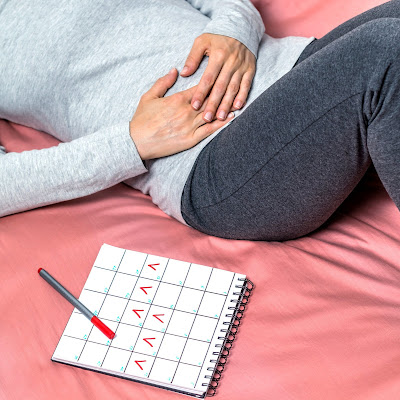Menstrual pain is a common experience for women ranging from mild discomfort to severe cramping. While over-the-counter medications can provide relief, there are also self-care practices that women can incorporate into their routines to help manage menstrual pain. This article will discuss the importance of self-care in managing menstrual pain and provide actionable tips to help women take control of their well-being.
The Importance of Self-Care for Menstrual Pain:
Self-care is essential for overall health and wellness and becomes especially important during menstruation. Many women may feel like they have no control over their menstrual pain; however, incorporating self-care practices can empower women to improve their physical and emotional well-being during their periods. Self-care can include anything from practicing relaxation techniques to engaging in low-impact exercises. By focusing on self-care, women can take an active role in managing their menstrual pain.
Tips for Self-Care During Menstruation:
Exercise: Doing low-impact activities such as walking, yoga, or swimming can help alleviate menstrual pain. Exercise releases endorphins, which act as natural painkillers and can also reduce stress and anxiety.
Heat Therapy: Applying heat to the lower abdomen can help relax muscles and alleviate menstrual cramps. Use a heating pad, hot water bottle, or warm bath for relief.
Nutritious Diet: Eating a balanced and healthy diet can help support overall health and reduce menstrual pain. Focus on foods rich in omega-3 fatty acids, calcium, and vitamin D, such as leafy greens, nuts, seeds, and fatty fish.
Herbal Supplements: Certain herbal supplements Habbe Mudir can help alleviate menstrual pain, such as ginger, turmeric, and chamomile tea. Always consult with a healthcare provider before taking any new supplements.
Sleep: Getting enough rest is essential for overall health and can help reduce menstrual pain. Aim for at least 7-8 hours of sleep each night.
Relaxation Techniques: Relaxation techniques, such as deep breathing exercises or meditation, can help reduce stress and alleviate menstrual pain.
Pain Medications: Over-the-counter pain medications, such as ibuprofen or acetaminophen, can relieve menstrual pain. Always follow the recommended dosage and consult a healthcare provider if you have concerns.
Hydration: Drinking plenty of water can help reduce bloating and alleviate menstrual pain. Aim for at least eight glasses of water per day.
Mindful Movement: Engaging in mindful movement practices such as tai chi or qigong can help reduce menstrual pain and promote relaxation.
Self-Care Routine: Establishing a self-care routine during menstruation can help empower women to manage their menstrual pain. Incorporate one or more of these tips into your daily routine to take control of your well-being.
Self-Care Beyond Menstruation:
Self-care should not be limited to menstruation but should be incorporated into daily routines. Taking care of yourself regularly can help improve your overall physical and emotional well-being. Some ways to practice self-care beyond menstruation include:
Engage in Hobbies: Find activities you enjoy, such as reading, painting, or hiking, and make time for them regularly.
Connect with Others – Building positive relationships with friends and family can improve emotional well-being and reduce stress.
Prioritize Sleep: Getting enough rest is essential for overall health and can help reduce stress and anxiety.
Mindfulness Meditation: Regular mindfulness meditation can help reduce stress and promote relaxation.
Take Breaks – Frequent daily breaks can help reduce stress and increase productivity Herbal Medicine Online Pakistan.
Conclusion:
Self-care is essential to managing menstrual pain, and incorporating self-care practices can empower women to take control of their well-being. Exercise, heat therapy, a nutritious diet, herbal supplements, sleep, relaxation techniques, pain medications, hydration, mindful movement, and establishing a self-care routine can all help alleviate menstrual pain. Practicing self-care beyond menstruation is also essential for overall health and well-being. By prioritizing self-care, women can improve their physical and emotional well-being and take control of their lives.


Comments
Post a Comment